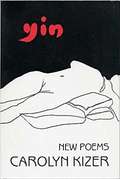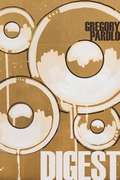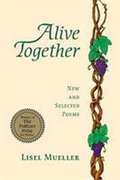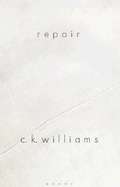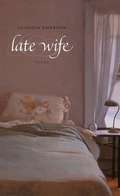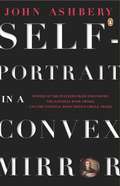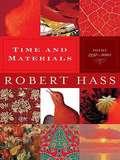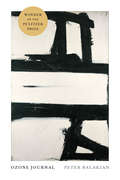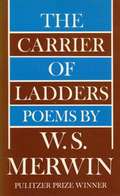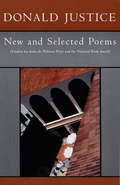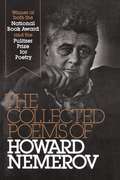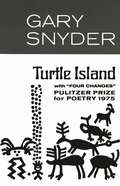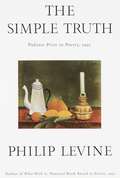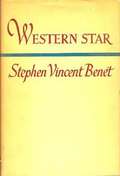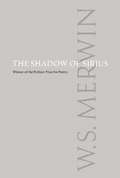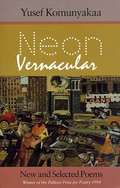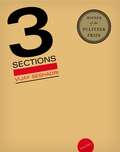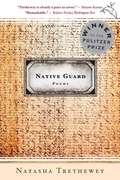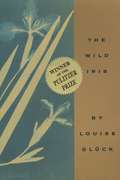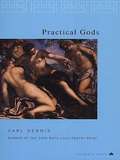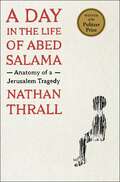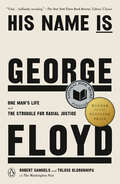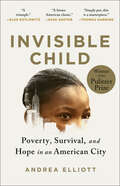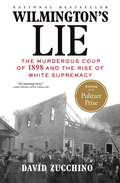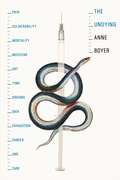Special Collections
Pulitzer Prize Award Winners
Description: Bookshare is pleased to offer the following titles, winners of the Pulitzer Prize Award. Note: Some drama winners are available and are listed under Fiction awards. #award
- Table View
- List View
Digest
by Gregory PardloFrom Epicurus to Sam Cooke, the Daily News to Roots, Digest draws from the present and the past to form an intellectual, American identity. In poems that forge their own styles and strategies, we experience dialogues between the written word and other art forms. Within this dialogue we hear Ben Jonson, we meet police K-9s, and we find children negotiating a sense of the world through a father’s eyes and through their own.
Winner of the 2015 Pulitzer Prize for Poetry
Alive Together
by Lisel MuellerIn a collection that represents over thirty-five years of her writing life, this distinguished poet explores a wide range of subjects, which include her cultural and family history and reflect her fascination with music and the discoveries offered by language. In fact, her book is a testament to the miraculous power of language to interpret and transform our world. It is a testament that invites readers to share her vision of experiences we all have in common: sorrow, tenderness, desire, the revelations of art, and mortality - "the hard, dry smack of death against the glass." To this community Mueller presents moments after moment where the personal and public realms intersect, where lives ranging from her own to those of Mary Shelley and Anton Webern illuminate the ways in which history shapes our lives. In "Brendel Playing Schubert," Mueller's breathtaking linguistic virtuosity reminds us how music can transport us out of ourselves and into "the nowhere where the enchanted live"; in "Midwinter Notes," the crepuscular world, stripped of its veil, shines forth as a signal from some realm where the sense of things may be revealed. In the title piece Mueller brings a sense of enduring and unclouded wonder to a recognition of all those whose lives might have been our own.
Pulitzer Prize Winner
Repair
by C. K. WilliamsRepair is body work in C. K. Williams's sensual poems, but it is also an imaginative treatment of the consternations that interrupt life's easy narrative. National Book Critics Circle Award-winner Williams keeps the self in repair despite love, death, social disorder, and the secrets that separate and join intimates. These forty poems experiment with form but maintain what Alan Williamson has heralded Williams for having so steadily developed from French influences: "the poetry of the sentence".
Pulitzer Prize Winner
Late Wife
by Claudia EmersonIn Late Wife, a woman explores her disappearance from one life and reappearance in another as she addresses her former husband, herself, and her new husband in a series of epistolary poems. Though not satisfied in her first marriage, she laments vanishing from the life she and her husband shared for years. She then describes the unexpected joys of solitude during her recovery and emotional convalescence. Finally, in a sequence of sonnets, she speaks to her new husband, whose first wife died from lung cancer. The poems highlight how rebeginning in this relationship has come about in part because of two couples' respective losses. The most personal of Claudia Emerson's poetry collections, Late Wife is both an elegy and a celebration of a rich present informed by a complex past.
Pulitzer Prize Winner
Self-Portrait in a Convex Mirror
by John AshberyA collection of poetry by John Ashbery.
Winner of the National Book Award.
Pulitzer Prize Winner
Time and Materials
by Robert HassThe poems in Robert Hass's new collection-his first to appear in a decade-are grounded in the beauty and energy of the physical world, and in the bafflement of the present moment in American culture. This work is breathtakingly immediate, stylistically varied, redemptive, and wise.
His familiar landscapes are here—San Francisco, the Northern California coast, the Sierra high country—in addition to some of his oft-explored themes: art; the natural world; the nature of desire; the violence of history; the power and limits of language; and, as in his other books, domestic life and the conversation between men and women. New themes emerge as well, perhaps: the essence of memory and of time.
The works here look at paintings, at Gerhard Richter as well as Vermeer, and pay tribute to his particular literary masters, friend Czeslaw Milosz, the great Swedish poet Tomas Tranströmer, Horace, Whitman, Stevens, Nietszche, and Lucretius. We are offered glimpses of a surprisingly green and vibrant twenty-first-century Berlin; of the demilitarized zone between the Koreas; of a Bangkok night, a Mexican desert, and an early summer morning in Paris, all brought into a vivid present and with a passionate meditation on what it is and has been to be alive. "It has always been Mr. Hass's aim," the New York Times Book Review wrote, "to get the whole man, head and heart and hands and everything else, into his poetry."
Winner of the 2007 National Book Award for Poetry, and the 2008 Pulitzer Prize for Poetry.
Ozone Journal
by Peter BalakianThe title poem of Peter Balakian's Ozone Journal is a sequence of fifty-four short sections, each a poem in itself, recounting the speaker's memory of excavating the bones of Armenian genocide victims in the Syrian desert with a crew of television journalists in 2009. These memories spark others—the dissolution of his marriage, his life as a young single parent in Manhattan in the nineties, visits and conversations with a cousin dying of AIDS—creating a montage that has the feel of history as lived experience. Bookending this sequence are shorter lyrics that span times and locations, from Nairobi to the Native American villages of New Mexico. In the dynamic, sensual language of these poems, we are reminded that the history of atrocity, trauma, and forgetting is both global and ancient; but we are reminded, too, of the beauty and richness of culture and the resilience of love.
Pulitzer Prize Winner
The Carrier of Ladders
by W. S. MerwinPulitzer Prize for Poetry 1971. Merwin has since won a National Book Award for his selected poems and the 2009 Pulitzer for the Shadow of Sirius.
New and Selected Poems
by Donald Justice"He is one of our finest poets, " Anthony Hecht has said of Donald Justice. Winner most recently of a 1996 Lannan Literary Award, Justice has been the recipient of almost every contemporary grant and prize for poetry, from the Lamont to the Bollingen and the Pulitzer. The present volume replaces his 1980 Selected Poems and contains, in addition, poems from the last 15 years.
Pulitzer Prize Winner
The Collected Poems of Howard Nemerov
by Howard NemerovThe former Poet Laureate of the United States, Nemerov gives us a lucid and precise twist on the commonplaces of everyday life.The Collected Poems of Howard Nemerov won both the National Book Award and the Pulitzer Prize in 1978. "Howard Nemerov is a witty, urbane, thoughtful poet, grounded in the classics, a master of the craft. It is refreshing to read his work. . . . "—Minneapolis Tribune "The world causes in Nemerov a mingled revulsion and love, and a hopeless hope is the most attractive quality in his poems, which slowly turn obverse to reverse, seeing the permanence of change, the vices of virtue, the evanescence of solidities and the errors of truth."—Helen Vendler, New York Times Book Review
Turtle Island
by Gary SnyderWinner of the Pulitzer Prize for Poetry (1975). These Pulitzer Prize-winning poems and essays by the author of No Nature range from the lucid, lyrical, and mystical to the political. All, however, share a common vision: a rediscovery of North America and the ways by which we might become true natives of the land for the first time.
The Simple Truth
by Philip LevineWritten in a voice that moves between elegy and prayer, The Simple Truth contains thirty-three poems whose aim is to weave a complex tapestry of myth, history (both public and private), family, memory, and invention in a search for truths so basic and universal they often escape us all.
Winner of the Pulitzer Prize
Western Star
by Stephen Vincent Benét"INVOCATION
Not for the great, not for the marvelous, Not for the barren husbands of the gold; Not for the arrowmakers of the soul, Wasted with truth, the star-regarding wise; Not even for the few Who would not be the hunter nor the prey, Who stood between the eater and the meat, The wilderness saints, the guiltless, the absolved, Born out of Time, the seekers of the balm Where the green grass grows from the broken heart; But for all these, the nameless, numberless Seed of the field, the mortal wood and earth Hewn for the clearing, trampled for the floor, Uprooted and cast out upon the stone From Jamestown to Benicia. This is their song, this is their testament, Carved to their likeness, speaking in their tongue And branded with the iron of their star. I say you shall remember them. I say When night has fallen on your loneliness And the deep wood beyond the ruined wall Seems to step forward swiftly with the dusk, You shall remember them. You shall not see Water or wheat or axe-mark on the tree and not remember them."
Pulitzer Prize Winner
The Shadow of Sirius
by W. S. MerwinThe nuanced mysteries of light, darkness, temporality, and eternity interweave throughout Merwin's newest collection of poems. "I have only what I remember," he admits, and his memories are focused and profound: well-cultivated loves, the distinct qualities of autumnal light, memories of Pennsylvania miners, a conversation with a boyhood teacher, and "our long evenings and astonishment." From the universe's chiaroscuro shadows, Merwin once again calls upon the language of surprise to illuminate existence. He is writing at the peak of his powers.
Pulitzer Prize Winner
Neon Vernacular
by Yusef KomunyakaaABOUT THE AUTHOR: Yusef Komunyakaa is a professor in the Council of Humanities and Creative Writing at Princeton University. He is the author of five Wesleyan titles including the Pulitzer-winning Neon Vernacular (1993), which also won the Kingsley-Tufts Poetry Award from the Claremont Graduate School, Thieves of Paradise (1998), Magic City (1992), and Dien Cai Dau (1988). In 1991 he won the Thomas Forcade Award, in 1993 he was nominated for the Los Angeles Times Book Prize in Poetry, and in 1997 he was awarded the Hanes Poetry Prize.
3 Sections
by Vijay SeshadriThe long-awaited third poetry book by Vijay Seshadri, "one of the most respected poets working in America today" (Time Out New York). Vijay Seshadri's new poetry is assured and expert, his line as canny as ever. In an array of poetic forms from the rhyming lyric to the philosophical meditation to the prose essay, 3 Sections confronts perplexing divisions of contemporary life-a wayward history, an indeterminate future, and a present condition of wanting to outthink time. This is an extraordinary book, witty and vivacious, by one of America's best poets.
Winner of the 2014 Pulitzer Prize in Poetry
Native Guard
by Natasha TretheweyWinner of the 2007 Pulitzer Prize for poetry, Natasha Trethewey's elegiac Native Guard is a deeply personal volume that brings together two legacies of the Deep South.The title of the collection refers to the Mississippi Native Guards, a black regiment whose role in the Civil War has been largely overlooked by history. As a child in Gulfport, Mississippi, in the 1960s, Trethewey could gaze across the water to the fort on Ship Island where Confederate captives once were guarded by black soldiers serving the Union cause. The racial legacy of the South touched Trethewey's life on a much more immediate level, too. Many of the poems in Native Guard pay loving tribute to her mother, whose marriage to a white man was illegal in her native Mississippi in the 1960s. Years after her mother's tragic death, Trethewey reclaims her memory, just as she reclaims the voices of the black soldiers whose service has been all but forgotten.Included in this beautiful new edition of Native Guard is an audio CD of the poems read by the author -- a lovely gift for anyone who loves poetry that speaks to the heart and mind.
The Wild Iris
by Louise GlückThis collection of stunningly beautiful poems encompasses the natural, human, and spiritual realms, and is bound together by the universal themes of time and mortality. With clarity and sureness of craft, Gluck's poetry questions, explores, and finally celebrates the ordeal of being alive.
Pulitzer Prize Winner
Practical Gods
by Carl DennisWinner of the 2001 Pulitzer Prize for Poetry. Practical Gods is the eighth collection by Carl Dennis, a critically acclaimed poet and recent winner of one of the most prestigious poetry awards, the Ruth Lilly Prize. Carl Dennis has won acclaim for "wise, original, and often deeply moving" poems that "ease the reader out of accustomed modes of seeing and perceiving" (The New York Times). Many of the poems in this new book involve an attempt to enter into dialogue with pagan and biblical perspectives, to throw light on ordinary experience through metaphor borrowed from religious myth and to translate religious myth into secular terms. While making no claims to put us in touch with some ultimate reality, these clear, precise, sensitive poems help us to pay homage to the everyday household gods that are easy to ignore, the gods that sustain life and make it rewarding. .
A Day in the Life of Abed Salama
by Nathan ThrallImmersive and gripping, an intimate story of a deadly accident outside Jerusalem that unravels a tangle of lives, loves, enmities, and histories over the course of one revealing, heartbreaking day.
Five-year-old Milad Salama is excited for a school trip to a theme park on the outskirts of Jerusalem. On the way, his bus collides with a semitrailer. His father, Abed, gets word of the crash and rushes to the site. The scene is chaos—the children have been taken to different hospitals in Jerusalem and the West Bank; some are missing, others cannot be identified. Abed sets off on an odyssey to learn Milad’s fate. It is every parent’s worst nightmare, but for Abed it is compounded by the maze of physical, emotional, and bureaucratic obstacles he must navigate because he is Palestinian. He is on the wrong side of the separation wall, holds the wrong ID to pass the military checkpoints, and has the wrong papers to enter the city of Jerusalem. Abed’s quest to find Milad is interwoven with the stories of a cast of Jewish and Palestinian characters whose lives and histories unexpectedly converge.
In A Day in the Life of Abed Salama, Nathan Thrall—hailed for his “severe allergy to conventional wisdom” (Time)—offers an indelibly human portrait of the struggle over Israel/Palestine and a new understanding of the tragic history and reality of one of the most contested places on earth.
His Name Is George Floyd (Pulitzer Prize Winner)
by Robert Samuels and Toluse OlorunnipaFINALIST FOR THE NATIONAL BOOK AWARD AND LOS ANGELES TIMES BOOK PRIZE; SHORT-LISTED FOR THE J. ANTHONY LUKAS PRIZE; A BCALA 2023 HONOR NONFICTION AWARD WINNER. A landmark biography by two prizewinning Washington Post reporters that reveals how systemic racism shaped George Floyd's life and legacy—from his family&’s roots in the tobacco fields of North Carolina, to ongoing inequality in housing, education, health care, criminal justice, and policing—telling the story of how one man&’s tragic experience brought about a global movement for change.&“It is a testament to the power of His Name Is George Floyd that the book&’s most vital moments come not after Floyd&’s death, but in its intimate, unvarnished and scrupulous account of his life . . . Impressive.&” —New York Times Book Review (Editors' Choice)&“Since we know George Floyd&’s death with tragic clarity, we must know Floyd&’s America—and life—with tragic clarity. Essential for our times.&” —Ibram X. Kendi, author of How to Be an Antiracist &“A much-needed portrait of the life, times, and martyrdom of George Floyd, a chronicle of the racial awakening sparked by his brutal and untimely death, and an essential work of history I hope everyone will read.&” —Henry Louis Gates, Jr., author of The Black Church: This Is Our Story, This Is Our SongThe events of that day are now tragically familiar: on May 25, 2020, George Floyd became the latest Black person to die at the hands of the police, murdered outside of a Minneapolis convenience store by white officer Derek Chauvin. The video recording of his death set off a series of protests in the United States and around the world, awakening millions to the dire need for reimagining this country&’s broken systems of policing. But behind a face that would be graffitied onto countless murals, and a name that has become synonymous with civil rights, there is the reality of one man&’s stolen life: a life beset by suffocating systemic pressures that ultimately proved inescapable. This biography of George Floyd shows the athletic young boy raised in the projects of Houston&’s Third Ward who would become a father, a partner, a friend, and a man constantly in search of a better life. In retracing Floyd&’s story, Washington Post reporters Robert Samuels and Toluse Olorunnipa bring to light the determination Floyd carried as he faced the relentless struggle to survive as a Black man in America. Placing his narrative within the larger context of America&’s deeply troubled history of institutional racism, His Name Is George Floyd examines the Floyd family&’s roots in slavery and sharecropping, the segregation of his Houston schools, the overpolicing of his communities, the devastating snares of the prison system, and his attempts to break free from drug dependence—putting today's inequality into uniquely human terms. Drawing upon hundreds of interviews and extensive original reporting, Samuels and Olorunnipa offer a poignant and moving exploration of George Floyd&’s America, revealing how a man who simply wanted to breathe ended up touching the world.
Invisible Child
by Andrea ElliottInvisible Child follows eight dramatic years in the life of a girl whose imagination is as soaring as the skyscrapers near her Brooklyn shelter. Dasani was named after the bottled water that signaled Brooklyn’s gentrification and the shared aspirations of a divided city.
In this sweeping narrative, Elliott weaves the story of Dasani’s childhood with the history of her family, tracing the passage of their ancestors from slavery to the Great Migration north. As Dasani comes of age, the homeless crisis in New York City has exploded amid the deepening chasm between rich and poor.
Dasani must guide her siblings through a city riddled by hunger, violence, drug addiction, homelessness, and the monitoring of child protection services. Out on the street, Dasani becomes a fierce fighter to protect the ones she loves. When she finally escapes city life to enroll in a boarding school, she faces an impossible question: What if leaving poverty means abandoning your family, and yourself?
By turns heartbreaking and inspiring, Invisible Child tells an astonishing story about the power of resilience, the importance of family, and the cost of inequality. Based on nearly a decade of reporting, Invisible Child illuminates some of the most critical issues in contemporary America through the life of one remarkable girl.
Wilmington's Lie
by David ZucchinoBy the 1890s, Wilmington was North Carolina’s largest city and a shining example of a mixed-race community. It was a bustling port city with a burgeoning African American middle class and a Fusionist government of Republicans and Populists that included black aldermen, police officers and magistrates. There were successful black-owned businesses and an African American newspaper, The Record. But across the state—and the South—white supremacist Democrats were working to reverse the advances made by former slaves and their progeny. In 1898, in response to a speech calling for white men to rise to the defense of Southern womanhood against the supposed threat of black predators, Alexander Manly, the outspoken young Record editor, wrote that some relationships between black men and white women were consensual. His editorial ignited outrage across the South, with calls to lynch Manly. But North Carolina’s white supremacist Democrats had a different strategy. They were plotting to take back the state legislature in November “by the ballot or bullet or both,” and then use the Manly editorial to trigger a “race riot” to overthrow Wilmington’s multi-racial government. Led by prominent citizens including Josephus Daniels, publisher of the state’s largest newspaper, and former Confederate Colonel Alfred Moore Waddell, white supremacists rolled out a carefully orchestrated campaign that included raucous rallies, race-baiting editorials and newspaper cartoons, and sensational, fabricated news stories. With intimidation and violence, the Democrats suppressed the black vote and stuffed ballot boxes (or threw them out), to win control of the state legislature on November eighth. Two days later, more than 2,000 heavily armed Red Shirts swarmed through Wilmington, torching the Record office, terrorizing women and children, and shooting at least sixty black men dead in the streets. The rioters forced city officials to resign at gunpoint and replaced them with mob leaders. Prominent blacks—and sympathetic whites—were banished. Hundreds of terrified black families took refuge in surrounding swamps and forests. This brutal insurrection is a rare instance of a violent overthrow of an elected government in the U.S. It halted gains made by blacks and restored racism as official government policy, cementing white rule for another half century. It was not a “race riot,” as the events of November 1898 came to be known, but rather a racially motivated rebellion launched by white supremacists. In this book, the author uses contemporary newspaper accounts, diaries, letters and official communications to create a gripping and compelling narrative that weaves together individual stories of hate and fear and brutality. This is a dramatic and definitive account of a remarkable but forgotten chapter of American history.
The Undying
by Anne BoyerThe Undying explores the experience of illness as mediated by digital screens, weaving in ancient Roman dream diarists, cancer hoaxers and fetishists, cancer vloggers, corporate lies, John Donne, pro-pain "dolorists," the ecological costs of chemotherapy, and the many little murders of capitalism.
